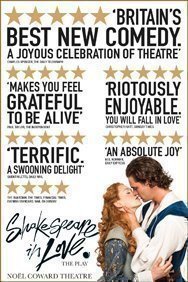It tells the contrasting then intertwining story of two women, one white and high born and one black and born into slavery, at the shameful height of the American slave trade. The back story of each woman unfolds exactly as you’d expect if you have even a nodding acquaintance with this period of history, perhaps from GONE WITH THE WIND, the recent Oscar winning film TWELVE YEARS A SLAVE, nominated DJANGO UNCHAINED, 1970’s classic ROOTS, or Mark Twain’s HUCKLEBERRY FINN.
The slaves, including title character Dessa, are subjected to every indignity as they’re treated like a commodity to be bought and sold for back breaking work in the cotton fields or humiliating domestic service where they are not even allowed their own name. Meanwhile white aristocrat Ruth is brought up to maintain the system and act like a southern lady, displaying cold eyed detachment to the black underclass, primped and pampered. Nothing new to learn here, they’re 2 dimensional symbols of their social station but it’s important to remember that as hackneyed as these characters are it’s a story we have to keep telling to each new generation so such atrocity is never tolerated again.
During the course of an improbably eventful pregnancy poor Dessa has a very rough time of things. As if the daily horrors of slavery aren’t enough our feisty heroine’s lover is killed, she’s imprisoned for provoking a slave revolt and escapes by duping a white liberal, employed to write her story, who then pursues the run away with all the ferocity and hatred of Javert in LES MIS.
Meanwhile all is not peaches and cream for Ruth, she marries a crooked husband who abandons her to run an unyielding farm alone, where she soon welcomes runaway slaves. Pretty soon Dessa ends up there and both women form an uneasy and unlikely alliance duping other slave owners. It’s all based on true stories, the lives of several real women whom novelist Sherley Anne Williams has amalgamated into the central characters of her novel. Celebrated musical theatre creatives, the script and lyric writer Lynn Aherns and composer Stephen Flaherty, then adapted it as a stage show. The two had a big hit turning another sprawling historical novel, RAGTIME, intertwining the story of several immigrant communities from a slightly later period, into a much loved musical of soaring melodies and anthemic ballades.
Unfortunately this second history lesson did not prove as popular and despite several productions around the States it’s hitherto always proved a critical dud. Until now.
Intrepid director Andrew Keates hasn’t been deterred and has staged a pocket sized European premiere that’s been widely acclaimed by London’s press. His staging is neat and ingenious and if you combine our white liberal guilt about slavery with the heady experience of hearing beautiful young women singing meaty harmonies and exhilarating key changes at such close quarters it’s easy to be bowled over.Cynthia Erivo who was so admired in the brief run of X factor musical, I CAN’T SING, at the London Palladium and the much adored revival of the COLOUR PURPLE at the Menier Chocolate Factory, is the perfect embodiment of a feisty slave girl. She has a gorgeous voice with which to let rip in the emotional bits and an understated acting style that doesn’t overpower the tiny performance space. Cassidy Jansen is equally successful as pursed and primped Ruth who turns into the kind of anti-establishment rebel we can all imagine we’d be in similar circumstances.
I have to be honest, the book zips through the most interesting dramatic bits so fast it begins to feel like a Wikipedia synopsis, preventing us from engaging with the characters on anything deeper than an “oh dear, a poor slave girl is singing about dead babies, how sad, 'hope things pick up for her soon” level and I found the soporific, generic score, which barely breaks out into melody as irritating as a dripping tap after a while. I’ve never seen so many audience members of all ages fall asleep before, I counted 7, including at one point 3 of the front row who were sitting inches away from the performers but, rest assured, by the end we were all cheering the show’s central message - it’s sad when bad things happen to good people. The piece’s exploration of the horrors of slavery may not be any more complex then that but who can argue with its aspirations.

 Trafalgar Studios 2 is the West End’s smallest theatre. In fact the stage is so small the director of this musical is fond of saying it’s about the same size as his bedroom, and it has 50 or so seats banked steeply around it. You’ll find it beneath Trafalgar studios, where Hobbit star Martin Friedman is currently playing Richard III, just off Trafalgar Square, around the corner from 10 Downing Street. I don’t know if David Cameron has ever dropped in but this critically acclaimed production in this tiny space might well tempt him.
Trafalgar Studios 2 is the West End’s smallest theatre. In fact the stage is so small the director of this musical is fond of saying it’s about the same size as his bedroom, and it has 50 or so seats banked steeply around it. You’ll find it beneath Trafalgar studios, where Hobbit star Martin Friedman is currently playing Richard III, just off Trafalgar Square, around the corner from 10 Downing Street. I don’t know if David Cameron has ever dropped in but this critically acclaimed production in this tiny space might well tempt him. 



 Shall I compare thee to a summer’s day? Maybe not, but I would spend many a sunny day inside watching this production again and again!
Shall I compare thee to a summer’s day? Maybe not, but I would spend many a sunny day inside watching this production again and again!